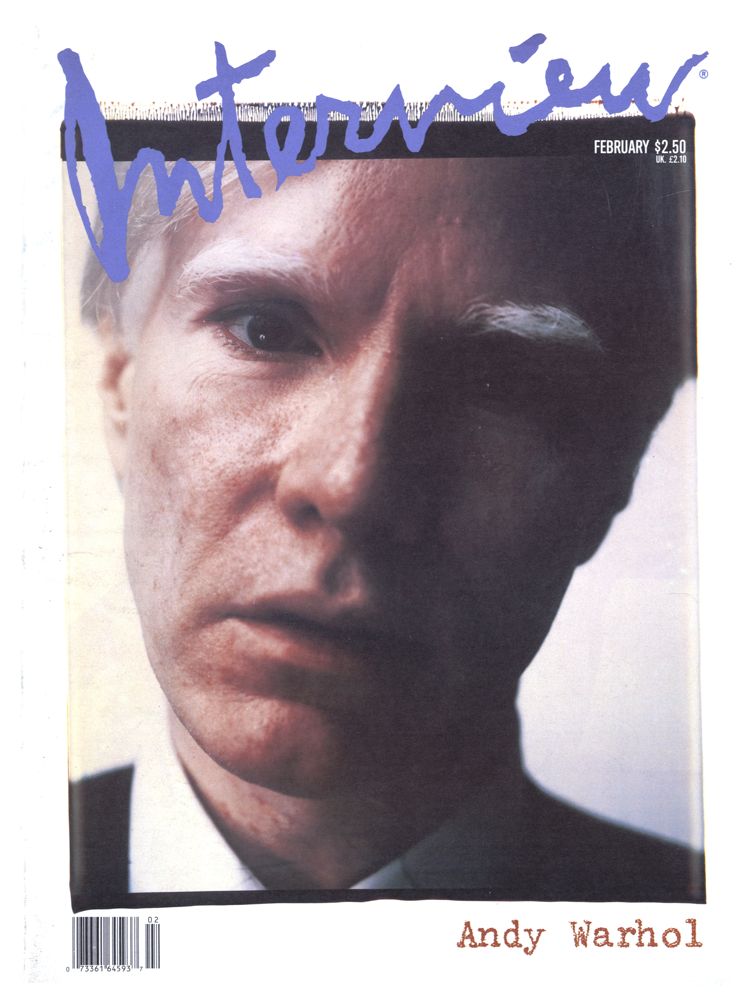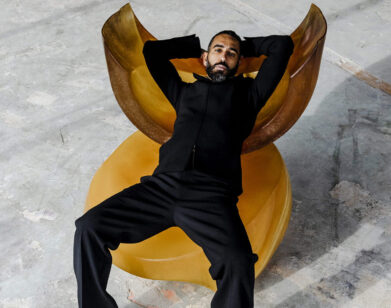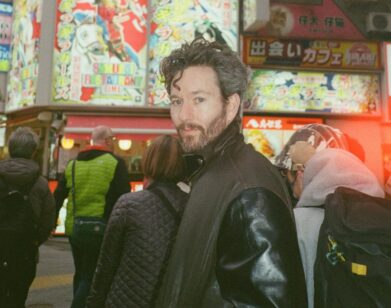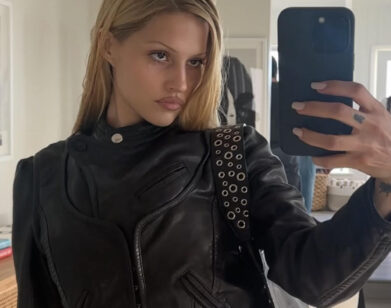Candidly Andy

ABOVE: ANDY WARHOL ON OUR FEBRUARY 1989 COVER. PHOTO BY ANDY WARHOL.
Every so often, the worlds of art, fashion, and culture pause to have an Andy moment. This time, Francois NARS has sounded the bell with the NARS Andy Warhol Collection that captures the stardust of an era in a compact. With a palette as motley and as cheeky as Warhol’s tastes and iconic lithographs, NARS celebrates the factory girl, the artistic deviant, and other ghosts of a New York past that deserve tribute thanks to Mr. Warhol’s vision.
In true Andy moment fashion, we look back to where the pop art magic began and revisit a few of the most telling excerpts from Andy’s most candid conversations.
November 1973
ROMAN POLANSKI: Europe is a fabulous place, because in half an hour you’re in a totally different culture.
ANDY WARHOL: Right at the border of each country it really does change, doesn’t it. The thing I miss, though, is television. Good old American television.
POLANSKI: That’s because you don’t know English television. English television is fantastic. The best. The best. There’s no commercials. Only one channel in England has commercials.
WARHOL: They’re starting to have a lot more, though. I like commercials.
POLANSKI: Oh yeah?
WARHOL: Because I like it as a whole day. Watching for a day is like watching one movie-a one-day movie. Because you see News, and you see Comedy, you see everything. And it’s so great. And the commercials are just as beautiful and they’re—
POLANSKI: Well I’m not particularly keen when in the middle of Othello, just after they’ve started—just started to strangle Desdemona, they sell me Preparation H.
WARHOL: No, it’s a breather. It makes it even more exciting.
POLANSKI: No.
WARHOL: Yes.
POLANSKI: I’ll tell you why you like commercials. Because the programs in America are so lousy that—
WARHOL They are not! The programs are wonderful! On the soap operas now they start to take off their clothes and then they have a commercial and after the commercial they’ve finished having sex. They’ve made it very easy.
WARHOL: People make such a big thing out of living and it really isn’t that important. Is it, or…?
POLANSKI: “Living is not important”?
WARHOL: Well I don’t know. You go to bed at night and you fall asleep and it’s all over. Then you wake up the next day and you have to start all over again.
POLANSKI: It’s amazing the differences in temperature in NY.
WARHOL: Well it’s better today than yesterday. And it’s better inside than outside.—And it’s better uptown than midtown.
WARHOL: I have a great idea. I thought maybe you could just do a whole monologue for an hour for me.
POLANSKI: No, I won’t be doing that, really.
WARHOL: You can sing or talk… anything…
POLANSKI: No, I can’t, honestly. I can only talk when I have a stimulating individual as yourself to talk to.
October 1975
LIZA MINNELLI: I get vertigo living up this height.
ANDY WARHOL: I know, it costs more to live up.
MINNELLI: You get a better view, I guess.
WARHOL: I guess so but I have to live on the first floor.
MINNELLI: I don’t like elevators either, do you?
WARHOL: I think they’re abstract. I can’t figure them out yet. Dogs like them a lot. They really do.
WARHOL: So do you believe in Communism, Liza?
WARHOL: I can’t give parties. It’s so hard. When I want to call somebody up for dinner they think I’m using them or something. I just can’t stand it.
MINNELLI: I can learn Chicago in six days and I cannot remember my credit card number! It must be a block. Do you have a good memory?
WARHOL: Every day’s a new day for me.
June 1976
DUSTIN HOFFMAN: When did they stop having conventional Easter parades?
ANDY WARHOL: I think when they stopped wearing hats.
HOFFMAN: Did they have one last year?
WARHOL: No, they haven’t worn hats in a long time.
HOFFMAN: You must have a high metabolism. You don’t watch what you eat, do you? You must burn it off with sheer angst.
WARHOL: No, I wear a corset.
HOFFMAN: Andy, what prompted you to make your famous remark about how people in the future would be famous for 15 minutes?
WARHOL: Gee, I can’t remember. It must have been on some TV show or something.
HOFFMAN: How long have you been famous? How many years? Or is it more abstract when you become famous than it is for, let’s say, an actor?
WARHOL: It’s different. I can still walk down the street and not be recognized. Another thing is if your picture’s in the paper they know you the next day but after that they don’t know you until your picture’s in the paper again.
December 1976
ANDY WARHOL: People say things without meaning them. It doesn’t mean anything.
JACK NICHOLSON: It does affect people.
WARHOL: Really? I didn’t think people cared.
BOB COLACELLO: If Rauschenberg said your new paintings were terrible, it would bother you, wouldn’t it?
NICHOLSON: At least it would arrest your attention, Andy.
WARHOL: Oh. Would it?
COLACELLO: I’m sure it would. You’d think, “Why does he say that?” or you’d wonder whether it was personal or professional or…
NICHOLSON: You’re not going to ignore it. The next time you see the person you’re going to be curious if he’s going to mention it or does he mean it or what have you. I would. I do.
WARHOL: Oh.
January 1977
ANDY WARHOL: So when are you going to get married?
JODIE FOSTER: Never, I hope. It’s got to be boring—having to share a bathroom with someone.
WARHOL: Gee, we believe the same things.
THIS COMPILATION ORIGINALLY APPEARED IN OUR NOVEMBER 1989 ISSUE.
Candidly Andy

@warholbeauty






